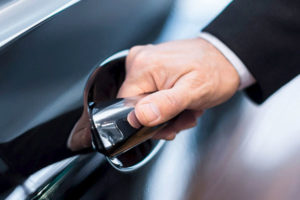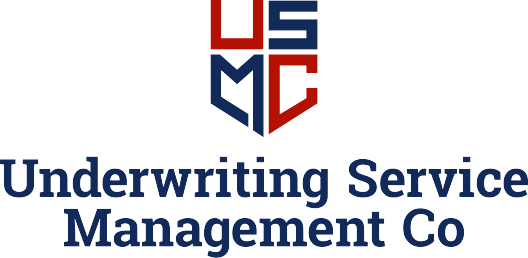Hired & Non-Owned Auto Insurance
Business owners need to protect their businesses from potential costly car accidents involving their hired or borrowed vehicles. Hired and non-owned auto insurance covers liability expenses for cars not owned by the business that holds the policy. Because auto accident expenses are so high, companies that frequently rent or borrow employee vehicles for business operations should invest in HNOA insurance.
What’s covered under hired and non-owned auto insurance?
Hired and non-owned auto (HNOA) insurance provides essential liability coverage for bodily injuries or property damage that a company’s employees cause while driving cars for work-related purposes. This protection applies to vehicles that companies “hire” (think rented vehicles) as well as other cars that are not owned by the business (such as personal employee vehicles that are used to perform work duties). We write all hired and non-owned auto insurance policies except for food delivery services.
Hired Autos
Hired autos are the vehicles a company rents, leases, or borrows for business purposes. If an accident occurs involving one of these cars, the hired auto insurance will cover the legal fees and any other expenses (such as medical expenses) associated with the accident. It’s important to note that this insurance policy does not consider vehicles rented, leased, or borrowed from family members, employees, partners, or limited liability members as hired cars. Therefore, these cars will not be covered.
Non-Owned Autos
Non-owned vehicles are the cars that employees personally own and use to conduct business for their company. Covered vehicles include the cars employees use to run business errands and the personal cars they receive an allowance for instead of getting a company-owned vehicle to drive around for business purposes.
Non-owned auto insurance covers accidents that occur in these cars during business operations and when the employee driving the vehicle is found negligent. This insurance is applied after the employee’s personal auto insurance limit is reached.
What Isn’t Covered by Hired and Non-Owned Auto Insurance?
Hired auto and non-owned auto insurance programs do not cover collision damage; they are strictly designed to limit a business’s liability associated with negligence related to accidents. They also do not cover the actual driver, who may be personally liable for third-party injuries or property damage.
What Is the Difference Between Commercial Auto and Hired and Non-Owned Auto Insurance?
Commercial auto insurance policies are designed to protect company-owned vehicles. In contrast, hired and non-owned auto insurance programs cover rentals and other borrowed cars used for business operations.
Why Businesses Need HNOA
Even if a company does not plan to use a rented or borrowed car regularly, they need to have an HNOA policy on hand if an accident occurs during the one time they need to borrow or lease a vehicle. It would be quite a shame if a business went under because they could not cover the fees associated with the accident on their own.
Need HNOA Coverage? Turn to USMC Insurance
Whether you need monoline HNOA coverage or a combination of programs (General Liability and HNOA), our team can create a customized plan that fits your clients’ needs. We also provide misc. general liability as well! Contact us today about our hired and non-owned auto insurance policies to help your clients protect their assets.

Hired & Non-Owned Auto Insurance
Business owners need to protect their businesses from potential costly car accidents involving their hired or borrowed vehicles. Hired and non-owned auto insurance covers liability expenses for cars not owned by the business that holds the policy. Because auto accident expenses are so high, companies that frequently rent or borrow employee vehicles for business operations should invest in HNOA insurance.
What’s covered under hired and non-owned auto insurance?
Hired and non-owned auto (HNOA) insurance provides essential liability coverage for bodily injuries or property damage that a company’s employees cause while driving cars for work-related purposes. This protection applies to vehicles that companies “hire” (think rented vehicles) as well as other cars that are not owned by the business (such as personal employee vehicles that are used to perform work duties). We write all hired and non-owned auto insurance policies except for food delivery services.
Hired Autos
Hired autos are the vehicles a company rents, leases, or borrows for business purposes. If an accident occurs involving one of these cars, the hired auto insurance will cover the legal fees and any other expenses (such as medical expenses) associated with the accident. It’s important to note that this insurance policy does not consider vehicles rented, leased, or borrowed from family members, employees, partners, or limited liability members as hired cars. Therefore, these cars will not be covered.
Non-Owned Autos
Non-owned vehicles are the cars that employees personally own and use to conduct business for their company. Covered vehicles include the cars employees use to run business errands and the personal cars they receive an allowance for instead of getting a company-owned vehicle to drive around for business purposes.
Non-owned auto insurance covers accidents that occur in these cars during business operations and when the employee driving the vehicle is found negligent. This insurance is applied after the employee’s personal auto insurance limit is reached.
What Isn’t Covered by Hired and Non-Owned Auto Insurance?
Hired auto and non-owned auto insurance programs do not cover collision damage; they are strictly designed to limit a business’s liability associated with negligence related to accidents. They also do not cover the actual driver, who may be personally liable for third-party injuries or property damage.
What Is the Difference Between Commercial Auto and Hired and Non-Owned Auto Insurance?
Commercial auto insurance policies are designed to protect company-owned vehicles. In contrast, hired and non-owned auto insurance programs cover rentals and other borrowed cars used for business operations.
Why Businesses Need HNOA
Even if a company does not plan to use a rented or borrowed car regularly, they need to have an HNOA policy on hand if an accident occurs during the one time they need to borrow or lease a vehicle. It would be quite a shame if a business went under because they could not cover the fees associated with the accident on their own.
Need HNOA Coverage? Turn to USMC Insurance
Whether you need monoline HNOA coverage or a combination of programs (General Liability and HNOA), our team can create a customized plan that fits your clients’ needs. We also provide misc. general liability as well! Contact us today about our hired and non-owned auto insurance policies to help your clients protect their assets.
Programs Offered
- Black Car Limousine Service Insurance
- Contracted Courier/ Messenger Service Insurance
- Dispatcher and Transportation Broker Insurance
- Non-Emergency Medical Transport Insurance
- Sales Fleet Insurance
- Subcontracted Trucking/Hauling Insurance
- Insurance for companies who hire independent contractors to drive on their behalf
- Insurance for companies who are required to carry HNOA by contract
- And much more!
Limits
- $1,000,000 per occurrence
Documents
Get in Touch with Us!
Have a question or want to learn more? Fill out the form here and we’ll respond to you within 1-2 business days. Thank you!

